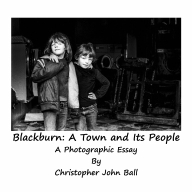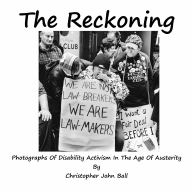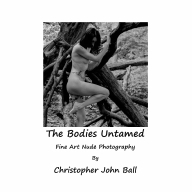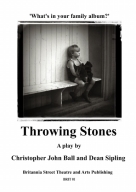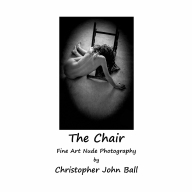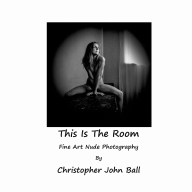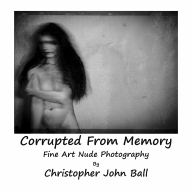
Defending Pornography: Free Speech, Sex and the Fight for Women's Rights by Nadine Strossen.

Tweet
Published by Abacus. ISBN-10: 0349107653
In 1991 Professor Nadine Strossen became the first female president of the American Civil Liberties Union. Founded in 1920 - the ACLU seeks "to defend and preserve the individual rights and liberties guaranteed to every person in this country by the Constitution and laws of the United States." In addition she sits on the 'Council on Foreign Relations' and she is a founding member of 'Feminists for Free Expression'.
'Feminists for Free Expression' use feminist principles and arguments to counter censorship in the United States and preserve the individual's right to view and create materials of their choice without the intervention of the state "for her own good" - believing that freedom of expression plays an important role in the quest for women's rights: -
"While messages reflecting sexism pervade our culture in many forms, sexual and nonsexual, suppression of such material will neither reduce harm to women nor further women's goals ....Censorship traditionally has been used to silence women and stifle feminist social change. It never has reduced violence; it has led to the imprisonment of birth control advocate Margaret Sanger and the suppression of such works as The New Our Bodies, Ourselves, The Well of Loneliness, and the feminist plays of Holly Hughes ...Women do not require 'protection' from explicit sexual materials ...Women are as varied as any citizens of a democracy; there is no agreement or feminist code as to what images are distasteful or even sexist. It is the right and responsibility of each woman to read, view or reproduce the sexual material she chooses without the intervention of the state 'for her own good'...This is the great benefit of being feminists in a free society" - reprinted in 'Defending Pornography'
Published in 1995 'Defending Pornography' was written as an attempt to counter the influential pro-censorship texts produced in the 1990's by the likes of Catharine MacKinnon and Andrea Dworkin. Given that MacKinnon had refused to take part in debates with feminists who are against censorship it was also intended as a way to force a debate with her. Strossen believes that Mackinnon and Dworkin have misinterpreted studies investigating the effects that pornography have on men and have ignored other factors. Indeed Strossen shows that both MacKinnon and Dworkin have made errors as they jumped to conclusions in their attempts to justify censorship.
Where laws, inspired by the work of both MacKinnon and Dworkin, have been introduced Strossen provides evidence to show that there has been an adverse effect upon the rights of free expression for women. The Canadian laws, introduced in 1992, made no allowances for work that had serious literary or artistic value as said laws were based upon MacKinnon and Dworkin's strict definition of pornography as 'sexually explicit material that subordinates or degrades women' and their insistence that it causes discrimination and violence against women. Indeed some feminists, who had pushed for the laws to be introduced, were shocked to find said laws enacted against themselves. For example - in Canada such laws were used to censor and seize artworks/literature produced by lesbians, homosexuals and feminists.
Despite this both MacKinnon and Dworkin saw the introduction of the censorship laws in Canada as a victory for women. In a novel twist - it appears that amongst the material held for inspection by Canadian customs agents were the books 'Pornography: Men Possessing Women' and 'Woman Hating' both written by one Andrea Dworkin.
In 'Defending Pornography' Professor Strossen argues that attempts to censor pornography in North America are actually hindering the advancement of women's rights and are in fact aiding the conservative right in its attempt to control the media. She shows how MacKinnon and Dworkin have hypocritically formed an unholy alliance with the conservative/religious movement to try and chip away at the First Amendment of the United States Constitution.
One element that is often missing within an analysis of the pro-censorship feminist argument is the incredible amount of misandry (what Judith Levine has called "the hate that dares not speak its name") to be found within texts by the likes of Andrea Dworkin. For example in her book 'Letters from a War Zone' she states:
"One can know everything and still be unable to accept the fact that sex and murder are fused in the male consciousness, so that the one without the imminent possibly of the other is unthinkable and impossible ... ...In everything men make, they hollow out a central place for death, let its rancid smell contaminate every dimension of whatever still survives. Men especially love murder. In art they celebrate it, and in life they commit it. They embrace murder as if life without it would be devoid of passion meaning, and action, as if murder were solace, still their sobs as they mourn the emptiness and alienation of their lives"
How would Dworkin have felt if the word 'men' in the above were replaced with black, gay, Jew or dare I say women? Many of the calls, from some quarters, for greater censorship are simply sexist attacks on men, based upon bigoted interpretations, on what is perceived to be male heterosexuality. For example - Catherine MacKinnon has written:
"In a patriarchal society all heterosexual intercourse is rape because women, as a group, are not strong enough to give meaningful consent...Compare victims' reports of rape with women's reports of sex; they look a lot alike....the major distinction between intercourse (normal) and rape (abnormal) is that the normal happens so often that one cannot get anyone to see anything wrong with it."
Dworkin and MacKinnon seem to be blind to the fact that countries that impose rigid censorship are often the very ones that socially, sexually and economically repress women - whereas women who live in countries that operate a more liberated view on censorship tend to have a higher level of freedom and rights. They are also equally dismissive of the fact that women themselves produce and consume pornography and erotica - as the number of female artists within the Association membership testify.
Essays within 'Defending Pornography' deal with contentious elements within the debate such as 'Positive Aspects of Pornographic Imagery', 'Posing for Pornography: Coercion or Consent?' and 'Revealing Views of Women, Men, and Sex.'
Though first published over 10 years ago 'Defending Pornography' still holds up as a great universal counter argument to those that want to restrict freedom of expression and should be read by all.
Review by Christopher John Ball
***** Rating
*Review Star Ratings If you have a photography related book you would like reviewing, including self-published material, email details to chris@cjballphotography.co.uk and I will happily consider doing so. The review will be hosted, free of charge, on this website and posted via Twitter and Facebook. All I ask in return is that a link be placed on your own site to the review on this website and, if used in any promotional material , I am credited as Christopher John Ball.
July 2024 Several books, featuring Christopher John Ball's photographs, are now available through Amazon or click on an image below to purchase via secure payments on lulu.com

Tweet


